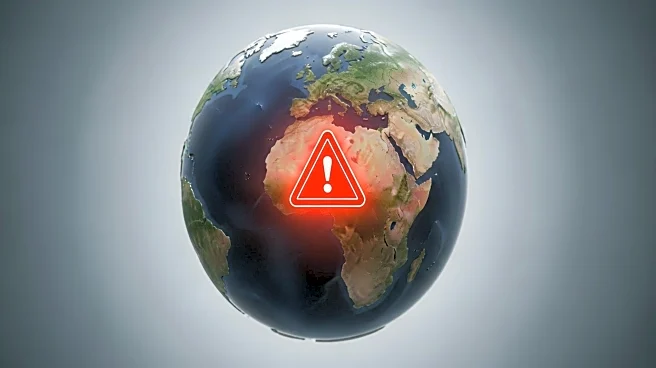What's Happening?
The U.S. State Department has reportedly suspended the issuance of most non-immigrant visas to Palestinian passport holders. This decision, communicated through a diplomatic cable dated August 18, affects individuals from the Palestinian territories, including the Israeli-occupied West Bank. The move follows a previous suspension of visitor visas for individuals from Gaza. The State Department has not explicitly confirmed the suspension but stated it is taking steps in compliance with U.S. law and national security. The decision comes in the wake of heightened tensions following attacks by Hamas on Israel and subsequent military actions. The suspension is seen as a blanket ban, requiring further review of each applicant, although Palestinians with other passports remain unaffected.
Why It's Important?
This development has significant implications for Palestinians seeking to travel to the U.S. for various purposes, including business, education, and medical treatment. The suspension could strain U.S.-Palestinian relations and impact diplomatic efforts in the region. It also reflects the broader geopolitical dynamics, as the U.S. continues to support Israel's military actions against Hamas. The decision may affect Palestinian diaspora communities and could lead to increased scrutiny of U.S. visa policies. The move aligns with recent actions by other countries recognizing Palestinian statehood under certain conditions, highlighting the complex international stance on the Israeli-Palestinian conflict.
What's Next?
The suspension of visas is likely to prompt reactions from Palestinian authorities and international human rights organizations. There may be calls for the U.S. to reconsider its stance, especially from countries advocating for Palestinian statehood. The decision could also influence future U.S. foreign policy and visa regulations, potentially leading to further diplomatic negotiations. Monitoring the response from Palestinian leaders and international allies will be crucial in understanding the broader impact of this policy change.











